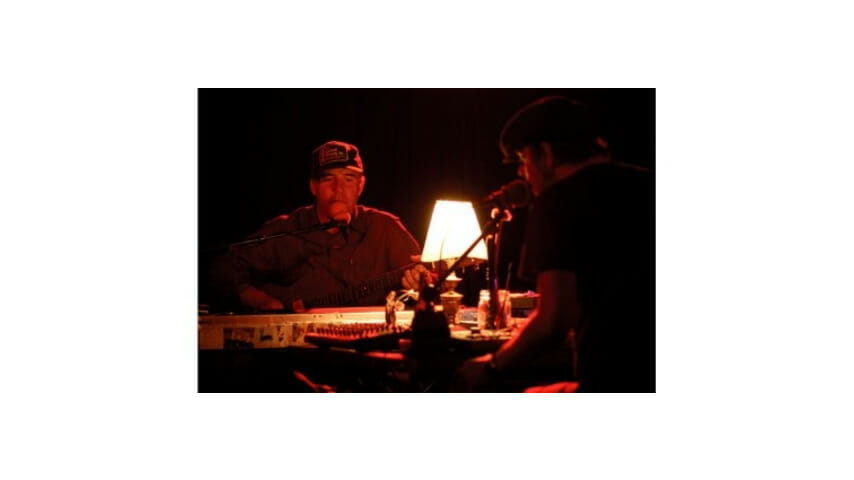Jason Lytle of Grandaddy

Jason Lytle once mentioned in an interview that as a child, he would draw playmates for himself in dirt with a stick. A creative solution to an emotional predicament like loneliness, and one that goes a long way toward explaining the music that would spill out of him in later years with indie giants Grandaddy. While the demise of the band is heartbreaking to many, what survives is a long legacy of storytelling, of stainless steel covered in ivy, dusty roads and drunken robots, and melodies that question technology even while celebrating it. While it’s an indelicate dance to maneuver, Lytle has recently embarked on a series shows that acknowledge Grandaddy’s past while hinting at his designs on the future.
-

-

-

-

-

-

-

-

-

-

-

-

-

-

-

-

-

-

-

-

-

-

-

-

-

-

-

-

-

-

-

-

-

-

-

-

-

-

-

-








































